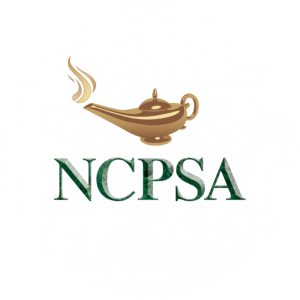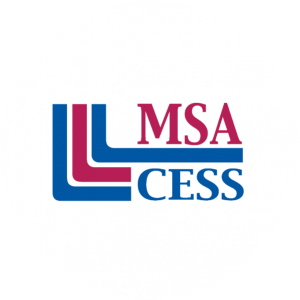When you are new to homeschooling, it can take a while to find your rhythm and discover what works best for your children and family. No two learners are alike, and even siblings have different needs, goals, and reasons to homeschool.
Fortunately, there is a wide range of options for approaching your family’s learning journey. From the use of structured lesson plans to open discovery methods and everything in between, Clonlara’s Off-Campus Program can support your family in making the choices about what and how to learn.
Keep in mind that there is no “right” way to homeschool—each approach is an invitation for you to explore and discover what works for your situation.
School at Home
Some families use a curriculum and structure like that of a typical school. The parent takes on the role of “teacher” and organizes the “school day” with time for distinct subjects, which are taught using workbooks, discussions, and quizzes.
Most families find they need less time to complete the school day at home, so it is not always necessary to spend six hours a day having lessons. Instead, students can have freedom outside their structured learning time for other independent projects.
Classical Education
Influenced by the ancient Greek and Roman philosophies of education, the classical approach to homeschooling emphasizes the study of literature, drama, poetry, and the sciences.
A focus on ancient texts is at the center of Clonlara parent Suzanne’s homeschooling strategy. She was drawn to the classical approach by a “love of the world’s great books.” “Another appealing aspect of classical education is its emphasis on philosophical questions of goodness and truth,” she explains. “I want my kids to ask [those questions].”
The Well-Trained Mind offers additional information about classical education and includes materials to help families get started with this approach.
Mastery Learning
In a traditional classroom, some students may struggle to learn concepts in the allotted time, while others become bored waiting for their peers to reach the same level of comprehension. The mastery approach to homeschooling solves this problem by giving each learner the time needed to become proficient in a subject or skill at their own pace.
Mastery learning lends itself well to using workbooks or online courses with clearly identifiable goals and correct or incorrect answers. Students can master skills and concepts as they work through these materials independently, and parents can assist them by answering questions without having to be the “teacher.”
Unit Studies
Some families develop units of learning by taking a central focus and expanding it outward in many directions. Students will likely be amazed to find a great number of varied topics connecting back to their original interest.
For Clonlara student Maxton, the unit studies approach has offered freedom to explore his own process of learning. His mom Sheila shares, “The lessons become fun and exciting learning experiences for both of us instead of a battle between us! He’s so much more inclined to take notes, measure, and read when it’s something he chooses and something he really wants to know more about.” Together, Maxton and Sheila have completed a unit study on trees, which included time spent hiking, studying acorns and oak trees, and even crafting.
Other students may be interested in a specific period in history or a new scientific innovation. Through studying diverse topics, they can learn about geography, math, art and culture, and much more. Thematic units create many opportunities for exploration of a student’s interests, hands-on learning, and connections to other areas of knowledge.
If you are interested in exploring this approach, try these unit studies created by Clonlara advisors, which can be adapted for multiple age and grade levels: Birds (PDF) and Water (PDF).
Self-Directed Learning
At some point in a child’s education, we hope that they will come to know themselves and their goals well enough to take over the reins of their learning and pursue their interests on their own. For homeschooling families, this is when the parent becomes less of an “instructor” and more of a “guide.”
Before trying the self-directed approach, Clonlara parent Nicole used her background as a teacher to design a kindergarten curriculum for her oldest child, but he rejected the activities she had curated! “Why can’t we just play?” he would ask her. “This seemed like a completely ridiculous proposal at first,” recounts Nicole, “but after a while I started wondering: what would happen if we just played—if I followed my son’s lead and engaged in what was important to him? I mentioned this to a friend who also homeschooled her children, and she pointed me toward John Holt’s books on the merits of self-directed learning. We decided to give it a try and found that it worked wonderfully for our family.”
Self-directed learning can be fostered at all age levels, and Nicole has continued to support her children with this strategy over the course of their education. “This [approach] has allowed my high school-age children to continue to learn what they love while earning an official diploma,” she shares.
Unschooling
In the unschooling approach, students of every age and developmental stage are trusted to identify, develop, and pursue their own passions. Spontaneity is often valued more than structure and planning, and the parent’s role is to provide a rich environment with freedom for the child to explore.
Clonlara parent Isolde knew she wanted her children to have a broader learning experience than being confined to a public school classroom full of kids the same age. “Why should children be kept apart from the rest of the society instead of being integrated into it, where they can meet people of every age, where they can find inspiration and stimulation for personal growth?” she asks. After choosing to homeschool, she says her family was “free to learn at our own pace according to each of the kids’ personal interests.”
While unschooling gives her children time to develop their individual interests, Isolde’s entire family also strives to be engaged in the learning process. “When we learn together with our children, we can demonstrate how to approach new topics and acquire knowledge and skills,” she describes. “This will give them a safe basis on which they can develop independence and confidence.”
To explore the unschooling approach in more detail, visit Growing Without Schooling and The Natural Child Project for additional information and resources.
Eclectic
Clonlara families will often use a variety of methods over the course of their learning journey. Many homeschool multiple children and may use a different approach for each depending on their needs. It is OK to take an eclectic approach on your way to finding what works best for your child.
Remember, there is no “right” way to homeschool. Whether you find and stick with one approach or mix and match along the way, you can create a rich and rewarding homeschooling experience for your children. Clonlara’s knowledgeable advisors are here to provide the recommendations, guidance, and support to help you make the most of it!
Which homeschool approach do you use? Share your story in the comments below.







